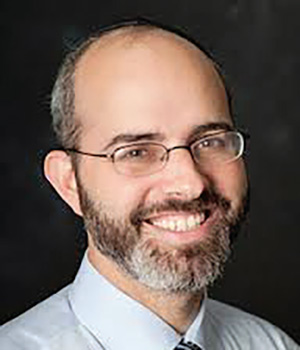
May these words of Torah serve as a merit le’iluy nishmat Menachem Mendel ben Harav Yoel David Balk, a”h.
This week we learned Zevachim 99. These are some highlights.
The generation’s Torah giant just entered the shul. Should he get the amud instead of the bachur who led selichot?
Rama (Orach Chaim Siman 581:1) teaches that some are of the opinion that whoever serves as prayer leader for selichot (special penitential prayers recited before Shacharit during the days before Rosh Hashanah and during the Ten Days of Repentance) should lead the rest of the prayers that day. He started the mitzvah. We tell the person who started the mitzvah to be the one who finishes the mitzvah, hamatchil b’mitzvah omrim lo g’mor. Rav Zilberstein was asked about the following case: During the selichot there were very few people in shul. The only one with a decent voice was a young unmarried yeshiva student. He was tasked with serving as chazan for the selichot. To fulfill the mandate quoted by the Rama, the gabbai was about to ask the young man to serve as chazan for Shacharit when the greatest Torah giant of the generation walked in to shul. The gabbai is now unsure what to do. Is it better to fulfill “hamatchil b’mitzvah omrim lo g’mor” and leave the young man as chazan for the rest of the day, or is it better to honor the greatest sage of the generation and offer the pulpit to him?
Rav Zilberstein points out that a comment of the Netziv on a verse quoted by our Gemara seems to shed light on this question. Our Gemara discusses the law that a priest who cannot do the service now would not be entitled to a share in the meat of the sacrifice. It derives this law from a verse (Vayikra 6:19) about eating the Korban Chatat, “Hakohen hamechatei osah yochlena, The priest who offers it as an offering that clears sin shall eat it.” This is a difficult verse. Our Gemara points out that all the kohanim serving that week are entitled to meat from the chatat; it isn’t only the priest who offers the blood of the sin offering who is entitled to its meat. What then is the verse trying to convey? Our Gemara suggests that the verse is teaching that the priest has to be suitable to offer the blood in order to get a share of the meat, and the verse is the source for the law that a priest who is disqualified from service is not entitled to any of the meat of the chatat. Netziv (Ha’ameik Davar Vayikra 6:19) suggests another answer and lesson from the verse. While all the priests of the week are entitled to eat from the meat of the sin offering, the verse is stating that the priest who offers the sacrifice is the one to eat from it first; he should eat from it before others because he started the mitzvah. Offering the sacrifice creates some of the atonement, and the eating of the sacrifice completes the atonement, kohanim ochlin uba’alim mitkaprin. The priest who offered the blood started the mitzvah of creating atonement and he should therefore be the one to complete this mitzvah by eating the sacrificial meat. The mandate of “hamatchil b’mitzvah omrim lo g’mor” is very strong. According to the Netziv, the lesson of the verse is that the priest who started the mitzvah of generating atonement should take precedence before another priest, who is otherwise more worthy, in eating the sacrifice and completing the mitzvah. From Netziv we seem to have an answer to our question. Even though a Torah giant deserves the pulpit more than a young unmarried yeshiva student, since the young man has a chance to complete a mitzvah he started, “hamatchil b’mitzvah omrim lo g’mor” takes precedence over other considerations.
Rav Zilberstein points out that based on a lesson of other poskim we would rule that in our situation the Torah giant should be offered to serve as chazan. When discussing the laws of chazan after selichot, Magein Avraham (Orach Chaim 581:7) references Shulchan Aruch Siman 53. Machatzit Hashekel explains that Magein Avraham was seeking to remind us that in regard to serving as a chazan, the most important consideration is the will of the community. The chazan needs to be someone who is merutzah al hatzibur. If the community wants one person to serve as chazan, that person should get the pulpit even before a mourner who would like to lead the prayers. Rav Zilberstein therefore ruled that even though the verse of our Gemara teaches that it is very important to fulfill “hamatchil b’mitzvah omrim lo g’mor,” since in our scenario the community would like the Torah giant to serve as chazan, the Torah giant should become the chazan. The deciding factor in choosing a prayer leader for the community is the will of the community. (Chashukei Chemed)
By Rabbi Zev Reichman
Rabbi Zev Reichman teaches Daf Yomi in his shul, East Hill Synagogue.













